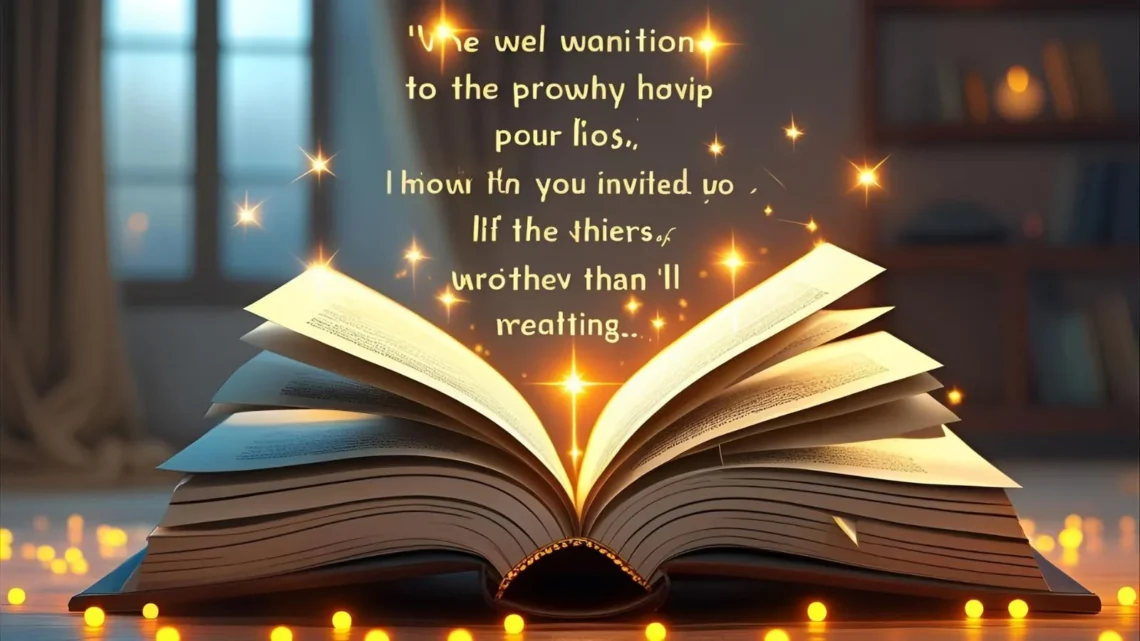Introduction: Why Quotes Matter
Quotes are powerful expressions—short bursts of wisdom, emotion, and insight. They condense complex experiences and deep truths into a few words, often leaving lasting impressions. From motivational speeches to literature, from social media captions to academic essays, quotes shape how we communicate and what we remember.
What Is a Quote?
A quote is a repetition of someone else’s statement or thoughts. It may be a famous line from a speech, a sentence from a book, a proverb, or even a line from a movie. Quotes are used to emphasize ideas, convey wisdom, express emotions, or add credibility to one’s writing or speech.
Types of Quotes
Here are the most common types of quotes:
1. Inspirational Quotes
These uplift and motivate. Example:
“The only way to do great work is to love what you do.” – Steve Jobs
2. Love Quotes
Used to express affection and emotion.
“You know you’re in love when you can’t fall asleep because reality is finally better than your dreams.” – Dr. Seuss
3. Life Quotes
Reflect on the nature of life and human experiences.
“Life is what happens when you’re busy making other plans.” – John Lennon
4. Funny Quotes
Infuse humor and lighten the mood.
“I’m not arguing, I’m just explaining why I’m right.” – Unknown
5. Literary Quotes
Drawn from novels, poems, or plays, often deeply philosophical or artistic.
“To be, or not to be, that is the question.” – William Shakespeare
Historical Importance of Quotes
Throughout history, quotes have been used to:
- Rally people (e.g., political slogans)
- Record philosophies (e.g., Aristotle, Confucius)
- Inspire movements (e.g., Martin Luther King Jr.)
- Preserve cultural wisdom (e.g., proverbs and idioms)
They often become symbols of larger ideas or turning points in history.
Quotes in Everyday Life
People use quotes for many reasons:
- Social Media: To express moods or opinions
- Public Speaking: To add authority or emotion
- Education: To support arguments or analyses
- Business: To motivate teams or inspire innovation
- Personal Journals: To reflect thoughts and emotions
How to Use Quotes Effectively
Using quotes well involves more than just copying text. Keep these tips in mind:
- Know the Source: Attribute it correctly.
- Relevance: Ensure the quote fits your message or theme.
- Context: Don’t misrepresent the original meaning.
- Brevity: Use concise and impactful lines.
- Tone: Match the quote to the tone of your writing or speech.
Famous Quotes That Changed the World
Here are a few quotes that left a lasting impact on society:
- “I have a dream…” – Martin Luther King Jr.
- “Give me liberty, or give me death!” – Patrick Henry
- “Be the change that you wish to see in the world.” – Mahatma Gandhi
- “Injustice anywhere is a threat to justice everywhere.” – Martin Luther King Jr.
Creating Your Own Quotes
You don’t always need to borrow words. You can craft your own quotes by:
- Capturing a personal insight or belief
- Expressing emotion in original language
- Sharing life lessons or observations
- Writing poetic or rhythmic lines

